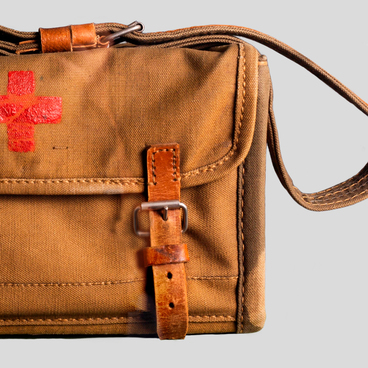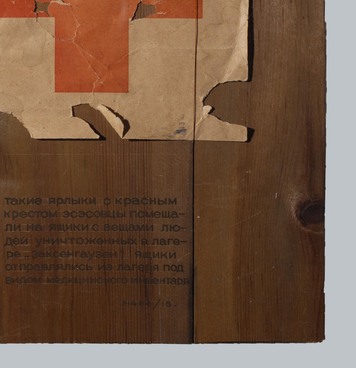The family of the accountant Zalman Gradowski was murdered in the first days after being transferred from the Belarusian ghetto to the Auschwitz-Birkenau concentration camp. Zalman himself survived and was assigned to the Sonderkommando forced labor unit.
Zalman’s literary talent was brought to light under tragic circumstances. As a member of the special unit, he was forced to perform horrible work. He had to escort prisoners to the gas chamber, and later carry their corpses on stretchers, deliver them to the crematorium, and bury the ashes.
Along with the ashes, members of Sonderkommandos threw in coins of different countries and the dental crowns of the dead. They hoped that such items would be found during later excavations and shed light on Nazi atrocities.
During the investigation and search for evidence of Nazi war crimes, a unique document was discovered. It was Zalman Gradowski’s diary where he described his arrival at the concentration camp and everything that happened to him and around him. The notebook was found in a German aluminum flask.
In his records, Gradowski described the events that took place in the camp. He had hidden the flask in one of the pits with prisoner ashes shortly before the revolt. On October 7, 1944, the prisoners in Auschwitz II rebelled. Together with other members of the Sonderkommando and ordinary inmates, Gradowski managed to kill several SS officers and put Crematorium IV out of action.
The participants of the revolt were killed. However, their deed showed that, even in the very heart of hell, people remained human and showed incredible courage. “Dear finder, search everywhere, ” wrote Zalman Gradowski.
After the liberation of the concentration camps, extraordinary commissions discovered and investigated numerous Nazi crimes. On January 27, 1945, Auschwitz was liberated by the 100th and 107th Infantry Divisions of the 60th Army of the 1st Ukrainian Front. In 2005, on the 60th anniversary of the liberation of Auschwitz, Zalman Gradowski’s notes were first published in Russian under the title “Letter to Descendants”.
Zalman’s literary talent was brought to light under tragic circumstances. As a member of the special unit, he was forced to perform horrible work. He had to escort prisoners to the gas chamber, and later carry their corpses on stretchers, deliver them to the crematorium, and bury the ashes.
Along with the ashes, members of Sonderkommandos threw in coins of different countries and the dental crowns of the dead. They hoped that such items would be found during later excavations and shed light on Nazi atrocities.
During the investigation and search for evidence of Nazi war crimes, a unique document was discovered. It was Zalman Gradowski’s diary where he described his arrival at the concentration camp and everything that happened to him and around him. The notebook was found in a German aluminum flask.
In his records, Gradowski described the events that took place in the camp. He had hidden the flask in one of the pits with prisoner ashes shortly before the revolt. On October 7, 1944, the prisoners in Auschwitz II rebelled. Together with other members of the Sonderkommando and ordinary inmates, Gradowski managed to kill several SS officers and put Crematorium IV out of action.
The participants of the revolt were killed. However, their deed showed that, even in the very heart of hell, people remained human and showed incredible courage. “Dear finder, search everywhere, ” wrote Zalman Gradowski.
After the liberation of the concentration camps, extraordinary commissions discovered and investigated numerous Nazi crimes. On January 27, 1945, Auschwitz was liberated by the 100th and 107th Infantry Divisions of the 60th Army of the 1st Ukrainian Front. In 2005, on the 60th anniversary of the liberation of Auschwitz, Zalman Gradowski’s notes were first published in Russian under the title “Letter to Descendants”.


